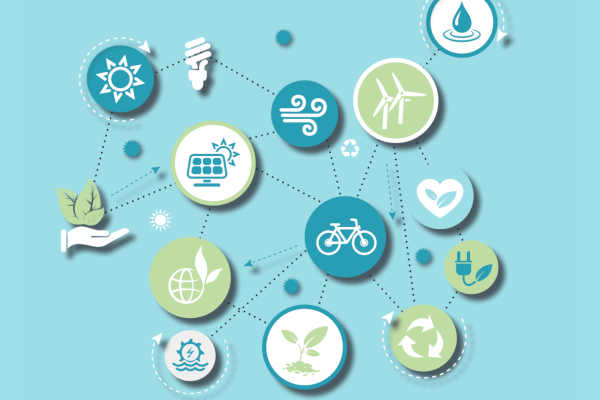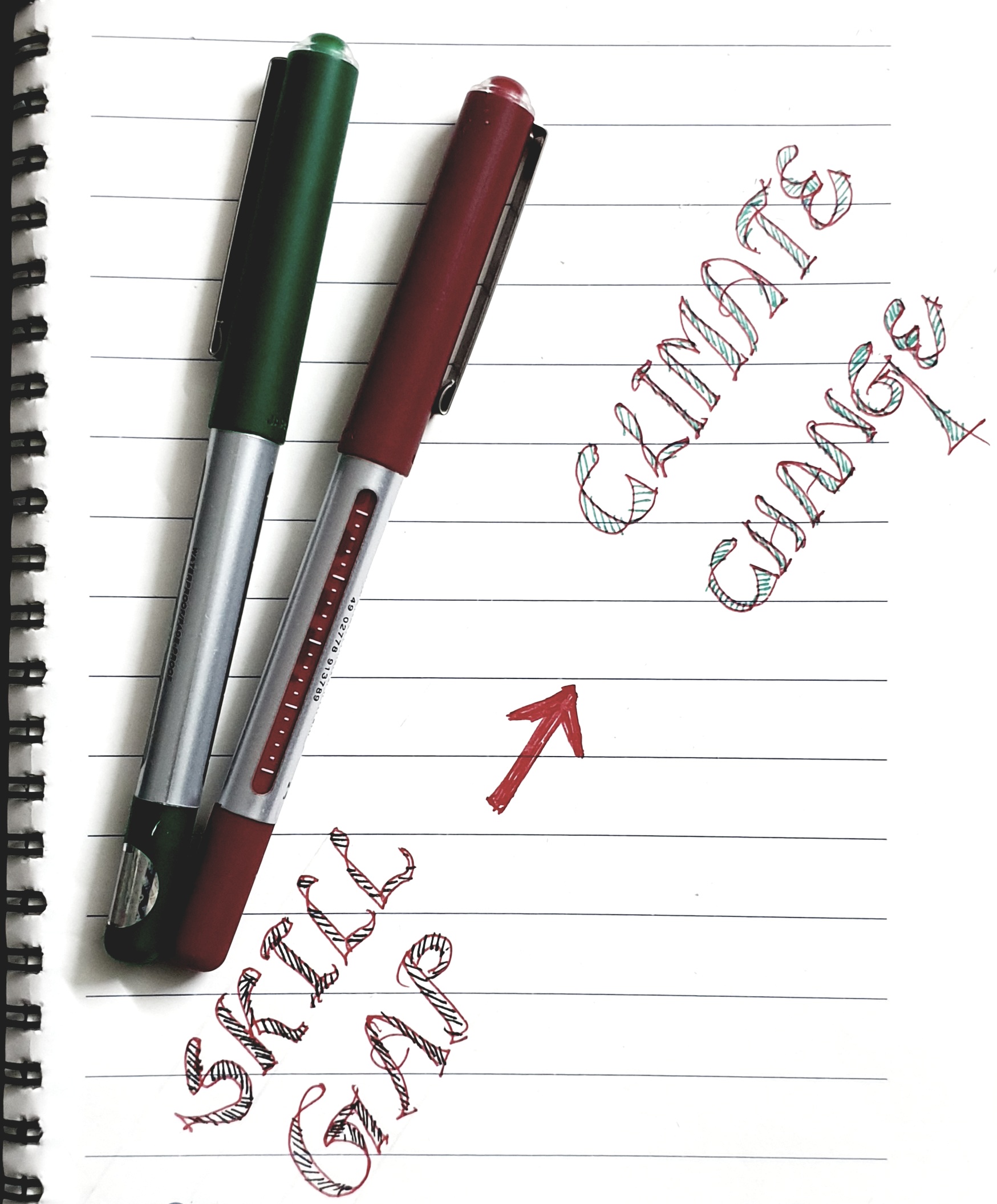Recently had a conversation with a young man who had just completed his graduation and was keen to figure out his future career. There is a preconceived notion that some sectors will not do good in future because of climate change, and hence he wanted a discussion with me to validate the options that will be relevant in the future. Climate change and the net-zero has started impacting the choice of career. Even ILO has been deliberating the impact on the jobs as we progress towards the goal of net-zero. The evolution of the term “Just Transition[1]” comes in that context. While green investments overall will create more jobs[2], there will be definitely an impact in some sectors. Renewables, building efficiency, industrial efficiency, mass transit, EV system, eco-system restoration etc., will all create more jobs in comparison to investments in comparable sectors. But how much investments have gone to the development of skills to support this future we are envisioning?
Look at the National Determine Contribution (NDC) documents. You will find almost all countries talking about capacity building and knowledge enhancement, but very few talk about the need of skill development (or up-skilling)[3].

Climate change is on top of almost every discussion agenda, and there is a growing risk of competence greenwashing. There is a rise in short term courses in this subject space, and almost on a daily basis, I get enquiries from my network asking me about the courses one should take to become an “Expert” in this space. Undoubtedly, the knowledge of climate change needs to be incorporated into every profession, and I mean every domain. It is now imperative to upskill all occupations with the knowledge of climate change and their role in the pathway towards net-zero. Whether a short duration course can bring the desired impact? Definitely not; it might be in a position to instil an interest in the subject. Still, the real impact will result only from consistent efforts across all forms of skill education.
Skill Vs Knowledge
Knowledge refers to familiarity with information and concepts. In contrast, skill is the ability to apply knowledge to specific situations. Knowledge can be transferred between people, or a person can self-acquire knowledge through observation and study. Skill is acquired through practice. So, applying this to our topic, I would say that both knowledge and skill are necessary for us to achieve the goal of net-zero. The challenge is that, at present, we are only skimming on the surface in relation to knowledge around climate change.
Climate Change Education
Climate change education cannot be not just the science behind it. It is a complex subject with natural, technical, economic, societal, political and psychological dimensions. It has to also account with regards to equity, not in current times, but inter-generational equity as well. There are still uncertainties related to the exact nature of impact and the pathways to how the human race will combat this. This complexity needs to be given the appropriate weightage while designing the pedagogical content for climate change education. Should the content focus on knowledge orientation, or should it focus on change orientation? As I listen to my children’s classes (online), I feel the curriculum is knowledge oriented. Teachers also need inputs on how to teach climate change. We need to recognize that if we need a future generation that is sensitive and skilled, it has to start from the schools. Fewer than 40 per cent of the teachers were confident about explaining the severity of climate change to the students, and 30 per cent knew how to explain the effects of the global phenomenon in their locality[4].

As India is getting ready with the New Education Policy (NEP), it might be worthwhile to consider how we can create leadership in coming years with a strong foundation laid for our next generation to harness the knowledge they gain.
Climate Change Skill Development
There have been Green Skill Councils formed and work undertaken as to what potential green jobs are emerging in the future and the development of appropriate curriculum. But there is a need to revisit the strategy. Let us start from the commitment each country has, and almost all countries will have a strategy around energy transition, energy efficiency and EV. We need to take each of these targets and work backwards on what type of skills are required and to what scale.
The £1.5B Green Homes Grant Scheme (GHGS), the UK’s most significant green stimulus package, was scrapped in March after it became clear the scheme was not feasible. A shortage of skilled green workers left the government unable to follow through with green-retrofit works across the UK[5].
It is the same across renewables and EV’s also. So rather than a separate skill council, each industry skill council will have to dedicate itself to identifying the skill gaps for their sectors future scenario and work towards addressing the same.
It is also about future competitiveness. As technological pathways are still in the evolution stage, investments in skills and research will take the early movers to advantage positions.
If the planning and investments are not made immediately, it will seriously hamper the progress towards the goals that we have set to save humankind. India has taken some good steps to move in the right direction with our commitments at COP 26, but we need to support it with urgent measures around re-organizing our skills pipeline.
[1] https://www.ilo.org/wcmsp5/groups/public/—ed_emp/—emp_ent/documents/publication/wcms_432859.pdf
[2] https://www.wri.org/insights/green-investments-create-more-jobs-polluting-alternatives
[3] https://www.ilo.org/skills/pubs/WCMS_732214/lang–en/index.htm
[4] https://www.downtoearth.org.in/news/climate-change/half-the-national-curricula-worldwide-don-t-mention-climate-change-most-teachers-unsure-of-explaining-subject-unesco-80031
[5] https://www.maddyness.com/uk/2021/05/20/how-a-green-skills-shortage-could-thwart-our-climate-commitments/

Very true n if India needs to take prime position in Climate Change through initiatives of ISA n OSOWOG it will have to extend National Skill Development Plan with a new Mission and include it in various fora at the soonest.